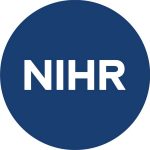Please find below a statement from the Department of Health & Social Care. Please bear this in mind when in correspondence with NHS Trusts and if planning a clinical research study.
If you have any queries, please contact Suzy Wignall, Clinical Governance Advisor, in the first instance.
Statement from DHSC
We recognise that at the current time those working in many NHS sites are under huge pressure as the number of COVID-19 cases and admissions to hospitals continue to rise and frontline clinical staff are unable to work due to sickness.
While we have a small number of proven treatments and vaccines for COVID-19, more are needed to reduce transmission, reduce the number of patients that require hospitalisation and to improve outcomes for those that do. It is therefore critical that at this challenging time we continue to recruit participants to our urgent public health (UPH) studies. As such I am writing to confirm that the current levels of prioritisation for research studies, set out within the Restart Framework still apply, as follows:
- Level 1a (Top Priority) – COVID-19 UPH vaccine and prophylactic studies (as prioritised by the Vaccines Task Force and agreed by Jonathan Van-Tam, deputy CMO) and platform therapeutics trials (currently RECOVERY/RECOVERY +; PRINCIPLE; REMAP CAP).
- Level 1b – Other COVID-19 UPH studies
- Level 2 – Studies where the research protocol includes an urgent treatment or intervention without which patients could come to harm. These might be studies that provide access to potentially life preserving or life-extending treatment not otherwise available to the patient.
- Level 3 – All other studies (including COVID-19 studies not in Level 1a or 1b).
I would also like to take this opportunity to remind you of the NIHR guidance for a second wave of covid 19 activity (https://www.nihr.ac.uk/documents/nihr-guidance-for-a-second-wave-of-covid-19-activity/25837).This guidance still applies and, as outlined, states that the deployment of staff funded through an NIHR Infrastructure award or funded by the NIHR Clinical Research Network (CRN) to front line duties should only occur in exceptional circumstances.
The deployment of clinical academic staff should be undertaken within the guidelines issued by a working group convened by the UK Clinical Academic Training Forum and the Conference of Postgraduate Medical Deans of the UK. Where NHS Trusts consider they need to redeploy staff to support the frontline this should only be done to support clinical activity during the emergency phase of the pandemic and we would expect them to return to their R&D roles as soon as possible, once the pressures on the system reduce.
As indicated by the Restart Framework, at the current time, we need to continue prioritise our support for the most urgent COVID-19 research as part of the response to tackle the pandemic. At the same time we need to ensure we continue to try and maintain support to deliver non-COVID studies currently open on the portfolio, particularly those within Level 2. A system-wide Recovery, Resilience and Growth programme has been established which brings together the key partners across the clinical research ecosystem to ensure the UK is well-positioned to take a coordinated national approach to achieving the recovery of the UK’s clinical research delivery and restore a full, diverse and active research portfolio as soon as practicable.
 NIHR virtual event – Equality, diversity and inclusion in applied health and social care research
NIHR virtual event – Equality, diversity and inclusion in applied health and social care research Research in the NHS during the COVID-19 pandemic – HRA update
Research in the NHS during the COVID-19 pandemic – HRA update NIHR resources – Patient and Public Involvement and Social Media Toolkit
NIHR resources – Patient and Public Involvement and Social Media Toolkit










 REF Code of Practice consultation is open!
REF Code of Practice consultation is open! BU Leads AI-Driven Work Package in EU Horizon SUSHEAS Project
BU Leads AI-Driven Work Package in EU Horizon SUSHEAS Project Evidence Synthesis Centre open at Kathmandu University
Evidence Synthesis Centre open at Kathmandu University Expand Your Impact: Collaboration and Networking Workshops for Researchers
Expand Your Impact: Collaboration and Networking Workshops for Researchers ECR Funding Open Call: Research Culture & Community Grant – Apply now
ECR Funding Open Call: Research Culture & Community Grant – Apply now ECR Funding Open Call: Research Culture & Community Grant – Application Deadline Friday 12 December
ECR Funding Open Call: Research Culture & Community Grant – Application Deadline Friday 12 December MSCA Postdoctoral Fellowships 2025 Call
MSCA Postdoctoral Fellowships 2025 Call ERC Advanced Grant 2025 Webinar
ERC Advanced Grant 2025 Webinar Update on UKRO services
Update on UKRO services European research project exploring use of ‘virtual twins’ to better manage metabolic associated fatty liver disease
European research project exploring use of ‘virtual twins’ to better manage metabolic associated fatty liver disease